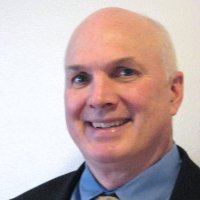Fallout from the political fireworks accompanying a late-February session of the Enumclaw City Council was evident when city leaders next gathered on March 10.
The session opened with City Attorney Mike Reynolds apologizing to Councilman Darrel Dickson and concluded with Councilman Hoke Overland suggesting the city look at implementing a code of conduct.
The brouhaha stems from a pending agreement between Enumclaw and Puget Sound Energy and the potential dollars that will change hands. Dickson had done some independent research, which included a conversation with the state’s Utilities and Transportation Commission.
During the Feb. 24 council meeting, attorney Reynolds and Mayor Liz Reynolds took turns took turns lobbing verbal bombs Dickson’s way. The city attorney said Dickson’s involvement could be perceived as an official stance by the city and, further, that Dickson’s activity could have put both the city and individual council members in legal jeopardy.
The mayor also was highly critical of Dickson during the Feb. 24 public session, accusing him of speaking on behalf of the entire city instead of a single elected official.
Overland spent the following day or two contacting a UTC employee, who confirmed Dickson acted solely on his own and repeatedly said his only goal was to ensure fairness for the citizens of Enumclaw.
That set the stage for the events of March 10.
Attorney Reynolds said his Feb. 24 statement regarding Dickson was the result of “time constraints” that led to “very little information” being available.
“In further review of the dialog between Councilman Dickson and the Washington State Utilities and Transportation Commission, I believe that Councilman Dickson did nothing inappropriate,” the city attorney said, reading from a prepared statement. With that, he offered an apology “for an interpretation of any statement that I made that led up to that conclusion.”
Reynolds also backtracked on any belief that Dickson risked putting himself in legal hot water.
“Based upon additional information, I do not believe that he (Dickson) has any personal liability,” Reynolds concluded.
As the final item on the March 10 agenda, Overland addressed the “situation that I think everybody is aware of at the last council meeting.”
He made his feelings crystal clear, stating the allegations leveled Feb. 24 were something “I, personally, don’t want to see take place ever again.”
With that, Overland suggested the council include, as part of a future workshop, studying a code of conduct.
He also suggested that Dickson was owned another apology.
Nothing more was said and the mayor gaveled the meeting to adjournment.
Contacted later, Overland was asked what he had in mind regarding a code of conduct and who it might apply to.
“The idea would be to craft a simple policy that would guide how we treat each other,” he said in a written reply. “I believe that we need to hold each other accountable to conduct the city’s business with professionalism and respect. My hope is that the policy would govern the Council, Mayor and also how we interact with the city’s administrative staff.”


